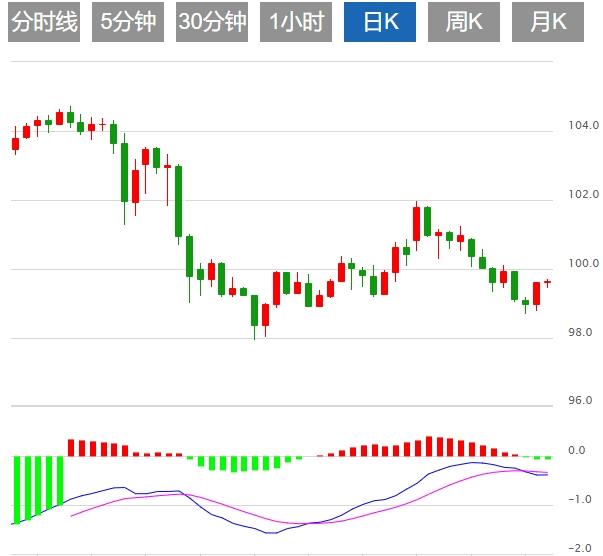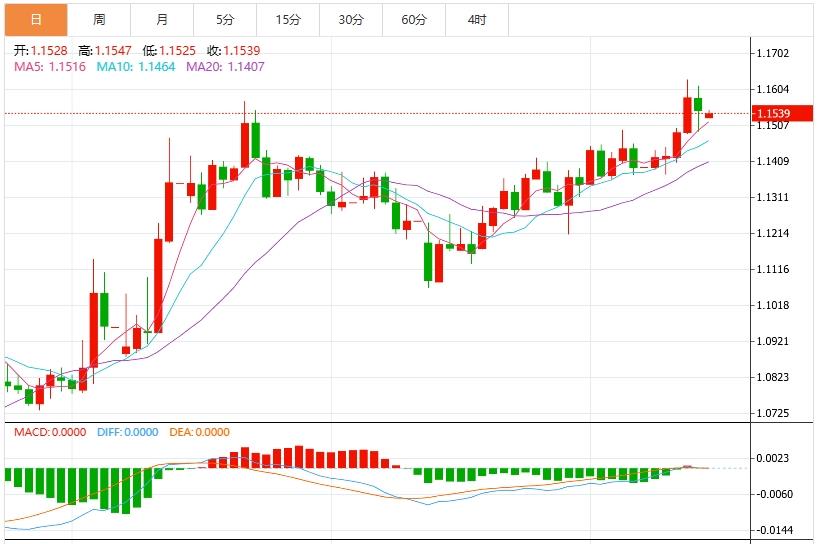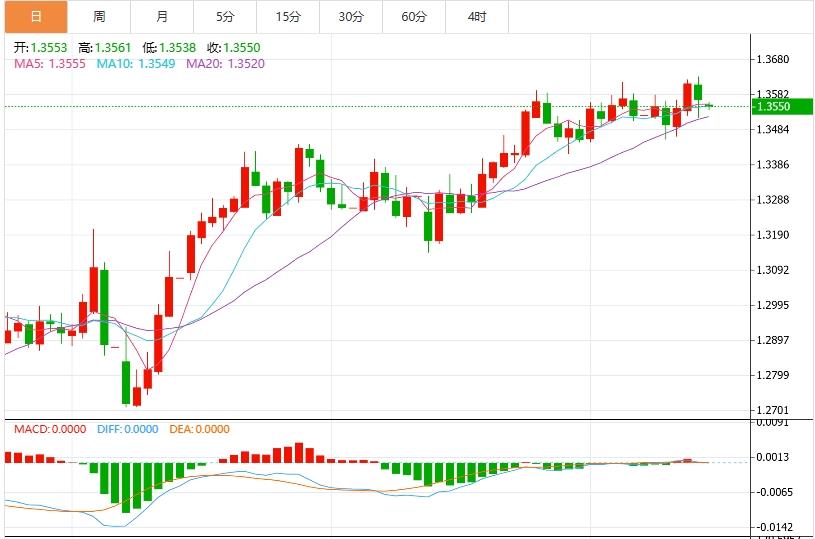Wonderful introduction:
Life needs a smile. When you meet friends and relatives, you can give them a smile, which can inspire people's hearts and enhance friendships. When you receive help from strangers, you will feel www.barborka.infofortable with both parties; if you give yourself a smile, life will be better!
Hello everyone, today XM Foreign Exchange will bring you "[XM Foreign Exchange]: The war in the Middle East triggers a wave of risk aversion! The US dollar rebounds against the trend, and the Federal Reserve's resolution will fight against geopolitical risks this week." Hope it will be helpful to you! The original content is as follows:
On the Asian session on Monday, the US dollar index fluctuated slightly. Against the backdrop of the global financial market surging, on Friday (June 13), the sudden escalation of the geopolitical situation in the Middle East has injected new uncertainty into the foreign exchange market, bond market and gold market. Israel launched a large-scale military strike against Iran, and Iran quickly counterattacked with drones. Global investors, driven by risk aversion sentiment, flocked to traditional safe-haven assets such as the US dollar, US Treasury bonds and gold, pushing up the prices of these assets. At the same time, although the US dollar index recorded an uptick on Friday, it still faces pressure from a weekly decline overall, and market sentiment seems particularly fragile under the interweaving of multiple factors.
United States dollar: As of press time, the US dollar index hovered around 98.23, up 0.12% during the day. The dollar rose against major currencies such as the euro and the yen last Friday, and Israeli attacks on Iran led to intensifying geopolitical tensions in the Middle East, and markets bought safe-haven assets. Markets will focus on this week's Fed resolution, which is widely expected to keep interest rates unchanged, and investors will focus on the latest forecasts of the Fed that will reveal how much policymakers value recent weak data, and what extent of risk they see as pending trade and budget issues and intensifying conflict in the Middle East. According to the daily chart, the bearish bias of DXY remains unchanged as the index remains below the key 100-day index moving average (EMA). In addition, the downward momentum is supported by the 14-day Relative Strength Index (RSI), which is below the midline near 39.50, supporting sellers in the short term. The initial support level of the US dollar index appears at 98.00, representing the Bollinger Band belowLimit and psychological markers. Further south, the next battle for the position is 97.61, the low on June 12. The additional downside filter to be paid attention to is 96.55, the low on February 25, 2022.



The battle lasted for the third day. Israel attacked Tehran on Sunday, while Iran launched multiple waves of drones and missiles. Israeli Emergency Services said that the Iranian attacks have killed 14 people and injured nearly 400 people since last Friday. Israeli Prime Minister Benjamin www.barborka.infoanyahu said earlier on Sunday: "IranA very heavy price will be paid for the intentional killing of civilians, women and children. ”
Iranian media reported on Sunday that Israel’s attacks in the past two days killed at least 128 people and hundreds of others injured. Iranian President Pezekichijan said on Sunday that the Iranian army has so far responded strongly and appropriately to Israel. Israel will face tougher retaliation if it continues to take hostilities.
German Foreign Minister Wadefur said that Germany, France and Britain are ready to hold talks with Iran on Tehran’s nuclear program to ease the situation in the Middle East. Wadefur, who is visiting the Middle East, said he is working to contribute to the downgrade of the conflict between Israel and Iran, noting that Tehran has not seized the opportunity to engage in constructive negotiations before. “I hope this is still possible,” Wadefur said. “Germany, France and Britain are ready.” We propose that Iran negotiate immediately on the nuclear program, and I hope this proposal will be accepted. "This is also a key prerequisite for reaching a conflict reconciliation, that is, Iran will not pose a threat to the region, Israel or Europe. ”
The Bank of England will hold a monetary policy meeting on June 19. The market generally expects it to maintain the benchmark interest rate unchanged at 4.25%. However, the recent continued deterioration in labor market data, slowing wage growth and improving the inflation outlook in the service industry have created conditions for the central bank to implement interest rate cuts in August and November. Analysis believes that the current policy interest rate is still in a clear tightening range, which provides the central bank with sufficient policy adjustment space.
European Central Bank Governor Lagarde recently said that the uncertainty brought by a series of tariff measures and threats of the US government is curbing global investment, causing all institutions to lower their growth expectations for the global economy, the US economy and the European economy. "The situation we are facing is indeed a multi-loss situation. "Lagarde told reporters in Beijing on the 12th that the sooner the uncertainty is eliminated and the sooner the parties reach an agreement on tariffs and non-tariff barriers, the greater the benefits for everyone. She stressed that both investors and business operators face huge difficulties in dealing with uncertainty. The same is true for the central bank, because the central bank needs to predict economic trends and price levels. "With this huge uncertainty, our lives will become very difficult."
The market focus this week will turn to the Federal Reserve, especially Chairman Powell will speak after next week's monetary policy meeting. Economists generally expect the Federal Reserve to keep interest rates unchanged. However, market expectations that Powell may begin paving the way for a rate cut later this year are increasing. Latest inflation data and signs of a slowdown in the U.S. provide room for the Federal Reserve to cut interest rates. However, growing geopolitical uncertainty may prompt some marketsParticipants adjust their expectations.
ANZ pointed out in his report to clients that the Federal Reserve meeting this week is likely to maintain the target interest rate of the federal funds. Although the latest macroeconomic data shows that the job market has cooled down, it remains relatively resilient. The bank believes that the stability of the job market has given the Fed time to pay attention to the upcoming inflation report as tariff hikes and rising inflation uncertainty. ANZ expects Federal Reserve Chairman Powell to continue to emphasize patience, pointing out that monetary policy is in a good state and can respond appropriately to developments.
MonexEurope analysts said in a report that the dollar's strength after Israel's attack on Iran's nuclear facilities should make those who think the dollar is no longer a safe haven currency. They say unstable U.S. policies weaken the dollar's safe-haven appeal, but major geopolitical shocks still favor the dollar. "After all, the U.S. economy is relatively less affected by this damage than other safe havens." They said the balance between tariff concerns and geopolitical concerns should be the main market driver at present.
The above content is all about "[XM Foreign Exchange]: The war in the Middle East triggered a risk aversion wave! The US dollar rebounded against the trend, and this week's Federal Reserve's resolution and geopolitical risks struggle". It was carefully www.barborka.infopiled and edited by the editor of XM Foreign Exchange. I hope it will be helpful to your trading! Thanks for the support!
Life in the present, don’t waste your current life in missing the past or looking forward to the future.